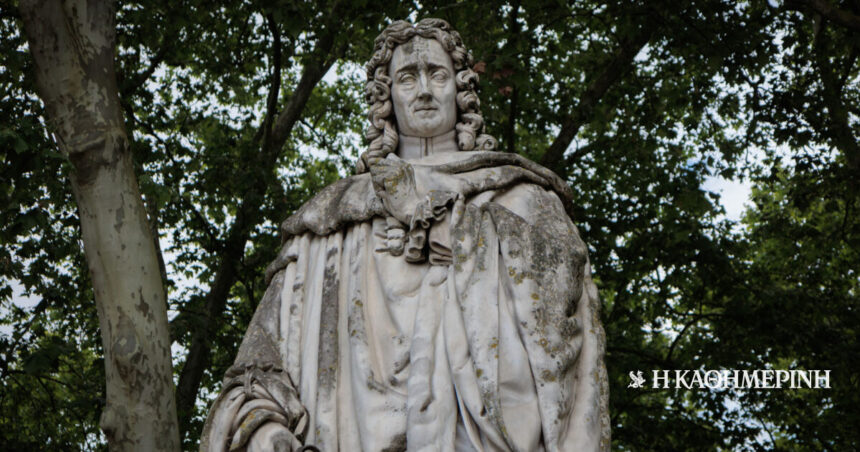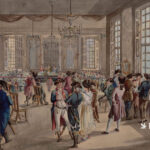THE Charles-Louis de Secondat, Baron de La Brède et de Montesquieuwas born on January 19, 1689 at La Brède, near Bordeaux, of a noble and prosperous family. Educated at the Oratorian Collège de Juilly, he received a degree in Law from the University of Bordeaux in 1708 and went to Paris to continue his legal studies. After his father’s death in 1713, he returned to La Brède to manage the estates he inherited.
In 1716 he inherited from his uncle the title Baron de La Brède et de Montesquieu and the office of president in the Parlement of Bordeaux, which at that time was primarily a judicial and administrative body. For the next eleven years he presided over the Tournelle, the criminal division of Parliament. In this capacity he monitored legal proceedings, supervised prisons and imposed various punishments, including torture, while he was also active in the Academy of Bordeaux, where he monitored scientific developments.
In 1721 Montesquieu published them anonymously – but it was a common secret Lettres persanes (Persian Letters), which were an immediate success. He began to spend more time in Paris, where he frequented salons, representing the Parliament and the Academy of Bordeaux. During this period he wrote several more works, such as “Dialogue de Sylla et d’Eucrate” (Dialogue of Sylla and Eucrate), “Réflexions sur la Monarchie Universelle” (Reflections on the Universal Monarchy), both in 1724 , as well as “Le Temple de Gnide” (The Temple of Knidus) in 1725.
In 1728 he was elected to the French Academy, but shortly afterwards he would leave France to travel abroad. After visiting her Italythe Germanythe Austria and other countries, went to Englandwhere he lived for two years. There he was particularly impressed by the English political system and made a series of important observations on which his later masterpiece was based “L’Esprit des Lois» (The Spirit of the Laws).
The writing of this work began on his return to France in 1731. But apart from this, during the same period he also wrote other works such as “Considerations sur les causes de la grandeur des Romains et de leur décadence” on the Causes of the Greatness and Decline of the Romans), published anonymously, three years later. Montesquieu’s aim in this case was to test the application of his views in the case of Rome, so as to discourage its use as a model for modern governments.
Montesquieu passed away, leaving behind an unfinished essay for Diderot and D’Alembert’s Encyclopaedia.
Parts of the ‘Considerations’ were incorporated into perhaps his most important work, ‘L’Esprit des Lois’, which was published in 1748, and – like the ‘Lettres persanes’ – was both controversial and highly successful. In this case, Montesquieu’s aim was to explain human laws and social institutions. He also spoke of the importance of political liberty, which includes laws that protect people from harm while allowing them to do as much freely as possible.
Two years later (1750), Montesquieu published a defense of “L’Esprit des Lois,” in reply to his various critics. Despite this effort, however, the Roman Catholic Church included this work in the “Index of Prohibited Books” the following year. Four years later, in 1755, Montesquieu would pass away in the French capital, leaving behind an unfinished essay for the “Encyclopédie” of Diderot and D’Alembert. Today he is recognized as one of the leading thinkers of the Enlightenment.
Column editor: Myrto Katsigera, Vassilis Minakakis, Antigoni-Despina Poimenidou, Athanasios Syroplakis








